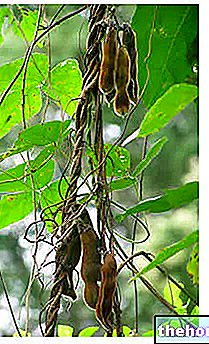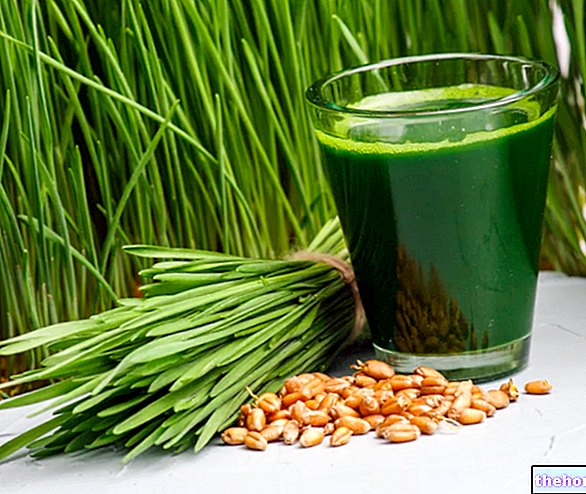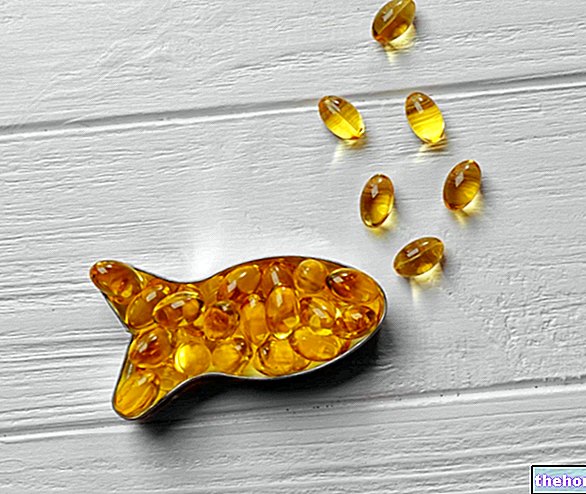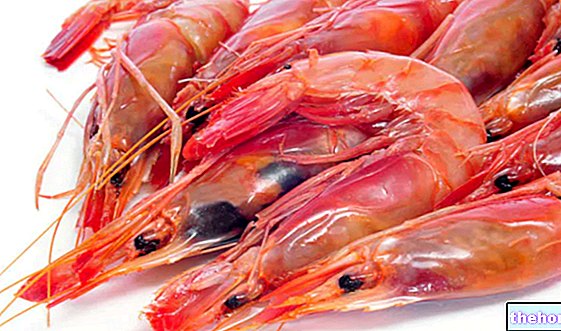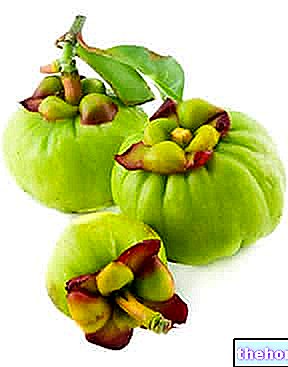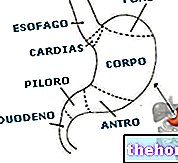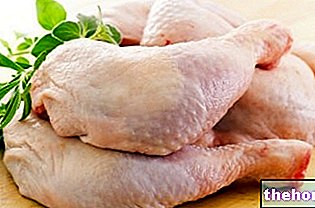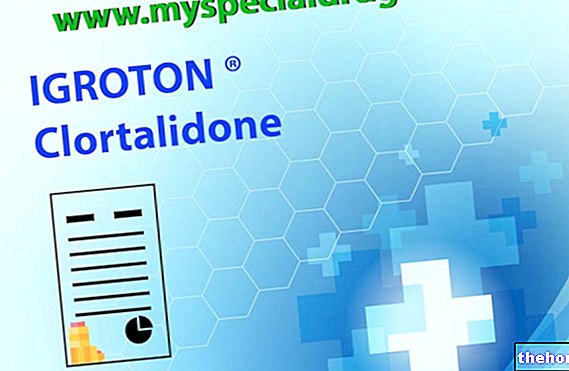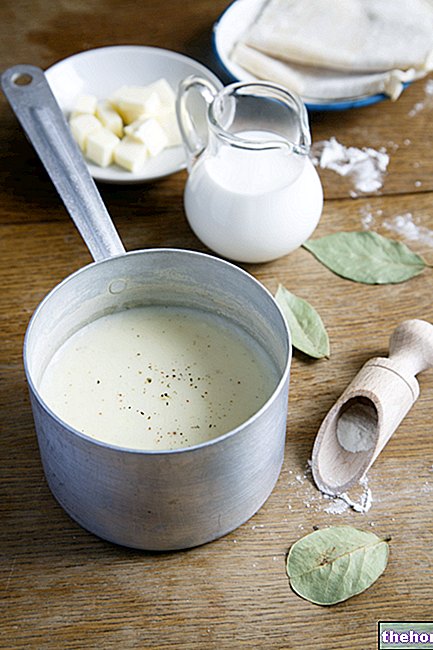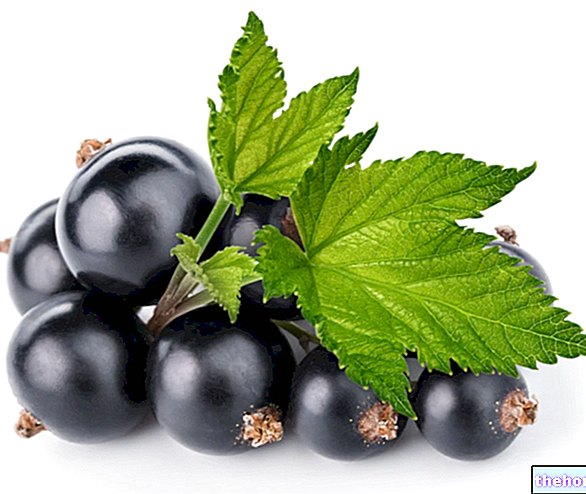Generality
Pectin is a soluble fiber contained in the primary cell wall of plants. Citrus fruits are particularly rich in it, from which it is usually obtained for its numerous industrial applications.

Indications
Why is pectin used? What is it for?
By virtue of its chemical-physical properties, pectin is currently used in the clinical and nutritional fields as a cholesterol-lowering, cardioprotective, alvus regulating and anti-tumor agent against colorectal carcinoma.
For these reasons, pectin is successfully used in treatment and prevention:
- Dell "hypercholesterolemia;
- Of dysmetabolisms;
- Constipation and diarrhea.
The high viscosity and the other rheological properties have allowed pectin to be included also in the food, pharmaceutical and cosmetological industry.
Benefits and Properties
What benefit has pectin shown during the studies?
There are several properties of pectin documented by various studies.
Pectin and hypercholesterolemia
The cholesterol-lowering properties would be ascribable to the chemical-physical characteristics of the pectin.
Reached the intestinal environment, in fact, the pectin would determine the formation of a very high viscosity product, capable of trapping dietary cholesterol, bile salts and other nutrients in its meshes.
According to various authors, the ingestion of 15 g of pectin per day, adequately divided between meals, would determine, in just a few weeks, an appreciable reduction, almost 15%, in blood cholesterol concentrations.
These activities would justify the cardio- and vaso-protective role of pectin.
Pectin and alvo disorders
The rheological characteristics of pectin, ie the ability to absorb water, would be useful in regulating the alvus, reducing the risk of constipation and normalizing the consistency of the stool in case of diarrhea.
Pectin and hyperglycemia
The ability to make the intestinal absorption of glucose more gradual and the ability to delay gastric emptying would allow pectin to adequately modulate the glycemic load of a meal.
This property would be particularly valuable in the course of diabetes, insulin resistance and various metabolisms.
Pectin and colorectal cancer
Recent studies would have focused on the preventive capabilities of pectin against colorectal cancer.
This "activity would be related to several properties of pectin, including:
- Intestinal fermentation and production of short-chain fatty acids, important in controlling the proliferation / differentiation process;
- Reduction of the intestinal persistence time of carcinogenic substances;
- Physical-mechanical protection of the intestinal mucosa;
- Correction of the alvo.
Dosage and method of use
How to use pectin
The dosages of pectin used in the studies that have confirmed the properties illustrated above, are around 15 grams per day, divided into several intakes concurrently with the main meals.
Side effects
The use of pectin, especially in predisposed subjects, could lead to the onset of gastrointestinal reactions, such as flatulence, cramps, crampy abdominal pain, nausea and diarrhea.
Contraindications
When should pectin not be used?
The use of pectin is contraindicated in case of hypersensitivity to the active principle.
Pharmacological interactions
What drugs or foods can modify the effect of pectin?
In case of concomitant administration, pectin could reduce the absorption of several active ingredients, such as lovastatin, clindamycin, tetracycline, digoxin, carotenoids and minerals.
The same chelating properties would also be observed against the micronutrients present in food.
Precautions for use
What do you need to know before taking pectin?
For purely precautionary purposes, it would be preferable to avoid, during pregnancy and in the subsequent period of breastfeeding, the use of supplements based on pectin, given the absence of studies.
The same caution should be reserved for patients suffering from irritable bowel syndrome or functional and organic disorders of the gastro-enteric system.
In all these cases the use of pectin, if strictly necessary, should be supervised by a physician.
Select plant Fir Acacia Acerola Sorrel Yarrow Yarrow Yarrow Aconito Adatoda Garlic Agnocasto Agrimonia Alchemilla Alkekengi Aloe Altea Witch Hazel Ammi or Visnaga Pineapple Andrographis Anemone Pulsatilla Angelica Anise Star Anise Japanese Star Anise Bitter Orange Bitter Areca Arnica Harpagophytum Arpagophyte Artemisia Asteragus Basil Asparagus Asparagus Peruvian Asparagus Asparagus Asparagus Hawthorn Boldo Borage Shepherd's Purse Boswellia Bucco Butea superba Cocoa Coffee Cajeput Calamus Calamus Marigold Camedrio Chamomile Roman Chamomile Camphor Cinnamon Ceylon Maidenhair Capuchin Artichoke Cardamom Cardiac Thistle Asian Thistle Carvi Cascara Cassia Catecu Catha Cabbage Celandine Chicory Centaurea Cinnamon Cypress Celandine Chives Cypress Coca Cola Colchico Combreto Condurango Comfrey Coriander Cranberry Barberry American Chrysanthemum Cumin Turmeric Damiana Digital Dioscorea Drosera Dulcamara Dunalilella Echinacea Eder a Ephedra Elenio Eleutherococcus Helichrysum Evening primrose Horsetail Alfalfa Erica Euphrasia Erisimo Escolzia Eucalyptus Farfara Farfaraccio Calabar bean Fenugreek Fennel Phytolacca Frangola Ash Fumaria Japanese Mushrooms Galega Ganoderma lucidum Garcinia Cambogia Mulberry Gentian Broom Ginkgo Ginkgo Guipana Guipana Gynestra Ginkgo Hibelia Gymnasium Hibiscus Guarulp St. John's Wort Horse Chestnut Ispaghul Hyssop Jaborandi Kava kava Konjac Laminaria Cherry Laurel Lavender Lemongrass Lespedeza Lovage Icelandic Lichen Lemon Flax Lippia Licorice Lobelia Hops Maca Marjoram Maize Mallow Manna Marrubio Marrubio d "water Matè Melaleuca Meliloto American Lemon balm Myrtle Myrama Walnut Nutmeg Walnut vomica Olive tree Meadowsweet Ononide Opuntia Oregano Orthosiphon Nettle Poppy Papaya Parietaria Feverfew Passiflora Chilli Perilla Periwinkle Phyllanthus Plantain Picrorhiza Pilosella Pino Pisci dia Podofillo Polygala Grapefruit Parsley Psyllium Pueraria mirifica Butcher's broom Pygeum Quassia Oak Rhubarb Ratania Rauwolfia currant Castor bean Rhodiola Rosehip Rosemary Rue Willow Sarsaparilla Sage Elderberry Sassafras Sedum Ergot Senna Serenoa Repens Soybean Solidago Tansy Taraxus Tamarind Tamarind Tamarind Tamarind Tamarindo Ursina Valerian Vanilla Mullein Verbena Veronica Viburnum Vinca Pansy Mistletoe Vine Withania Yohimbe Saffron Ginger Pumpkin Select disease Juvenile Acne Rosacea Tinnitus Tinnitus Aerophagia Tendon Affections Afonia Aphthae Algias Functional Halitosis Breastfeeding Allergy Anemia Anguish Anxiety Arteriosclerosis Asthrosis Asthrosis Arthritis Arthritis Men Sex Woman Blepharitis and Conjunctivitis Eye bags Bronchitis Gallstones Kidney stones Salivary stones Baldness Androgenetic Candida Fragile hair Caries Headache Cellulitis Motion sickness Cystitis C limaterio Cholecystopathy High cholesterol Ulcerative colitis Colonoscopy Contusions Hematoma Convalescence Couperose Depression Dermatitis Diaper dermatitis Diabetes Diarrhea Erectile dysfunction Dyslipidemia Dysmenorrhea Dyspepsia Disturbances of vision Hemorrhoids Epistaxis Herethism Heart disease Fever Fibromyalgia Gastro-intestinal disease Flatulence Hypertension Fibromyalgia Gastrointomnia Jaundice Laryngitis Renal lithiasis Toothache Sore throat Thinness Menopause Meteorism Mononucleosis Alzheimer's disease Crohn's disease Nausea Vomiting Obesity Dark circles Onychomycosis Osteoporosis Dry skin Periarthritis Piorea Low pressure Prostatitis Psoriasis Colds Breast fissures Anal fissures Gastro-nasal rhinitis Senescence Premenstrual Syndrome Sinusitis Quit smoking Overweight Fatty liver Constipation Stomatitis Stress Cough Triglycerides high Ulcer Burns Nails Brittle flashes Heat Warts Dizziness Properties herbal Tanning Abortive adaptogenic Aphrodisiac bittering analgesic anesthetic anorectics analgesic antacid anti-allergic anti-asthmatic Antibiotic catarrh Anticellulitiche anticonvulsant Antidiaforetiche antidiarrheal edematous anthelmintic antiemetic Antiemorroidarie antiphlogistic Antiidrotiche Antinevrotiche Antioxidants antipyretic antirheumatic antiscorbutic Antiseptic antispasmodic anti-uric Aperitive Flavoring Astringent Balsamic Bechiche Capillarotrope Cardiotonic Carminative Cathartic Caustics Healing Cholagogues Choleretic Dyes Decongestants Deodorants Purifying Diaphoretic Cleansers Disinfectants Detoxifiers Thirst quenching Diuretics Exciting Emetics Emmenagogues Emollients Hemostatic Energies Hepatoprotectors Expectorants Eupepticus Moisturisers Galactosensitizers lanti Hypertensive Hypnotic Hypoglycemic Hypotensive Irritants Laxatives Soothing Narcotic Nerves Nutrients Odontalgic Pectoral Purgative Revulsive Remineralizing Refreshing Rubefacient Scialagoghe Sedative Soporifugas Sneezing Stomachic Stomatics Narcotic Vascular Tightenitis


